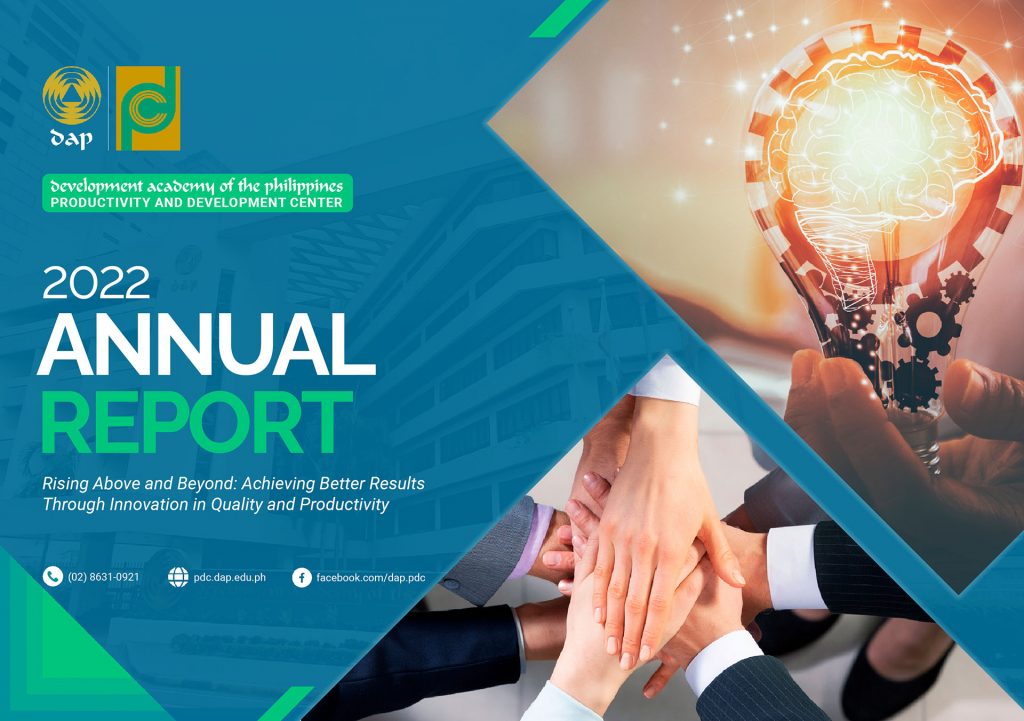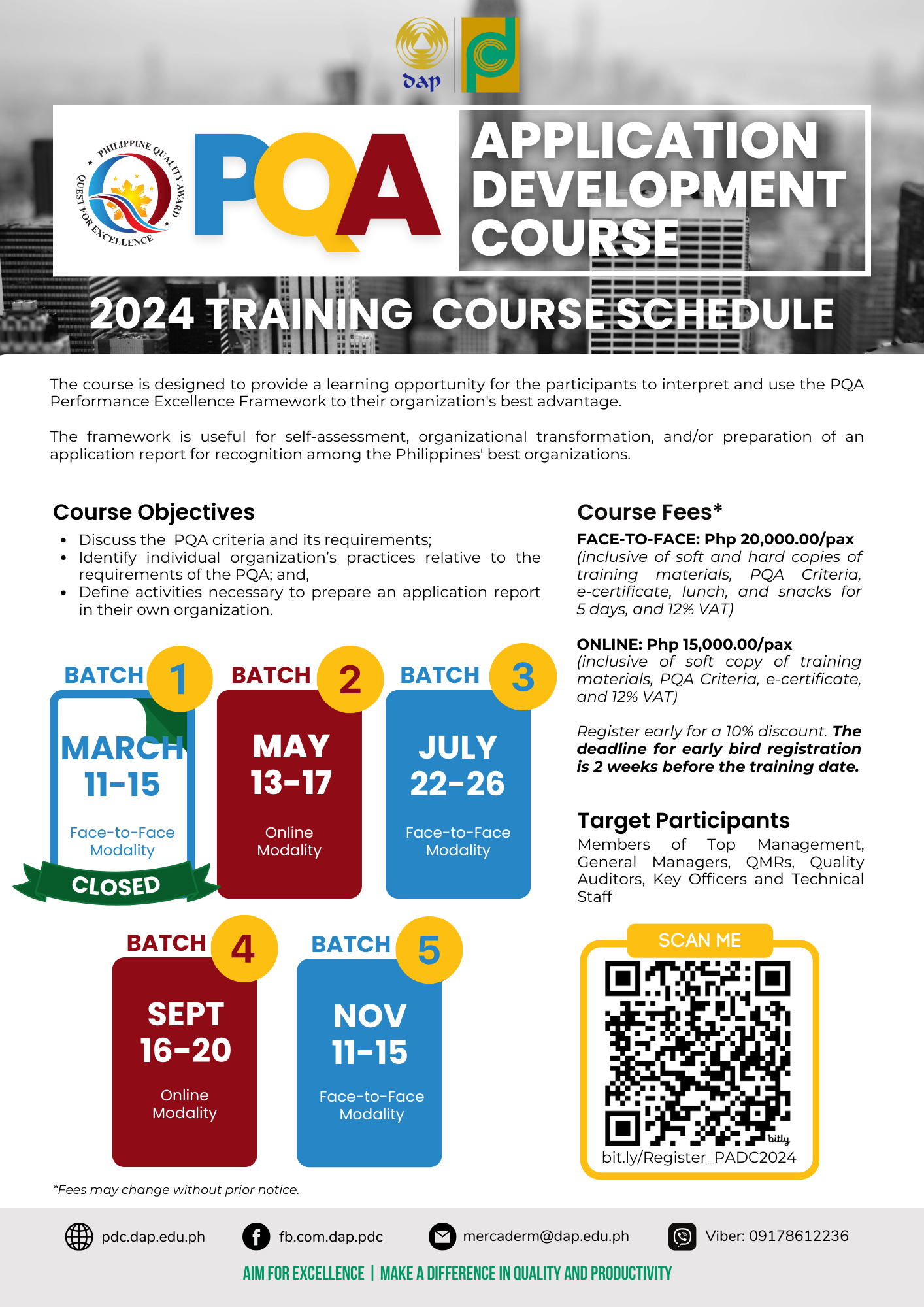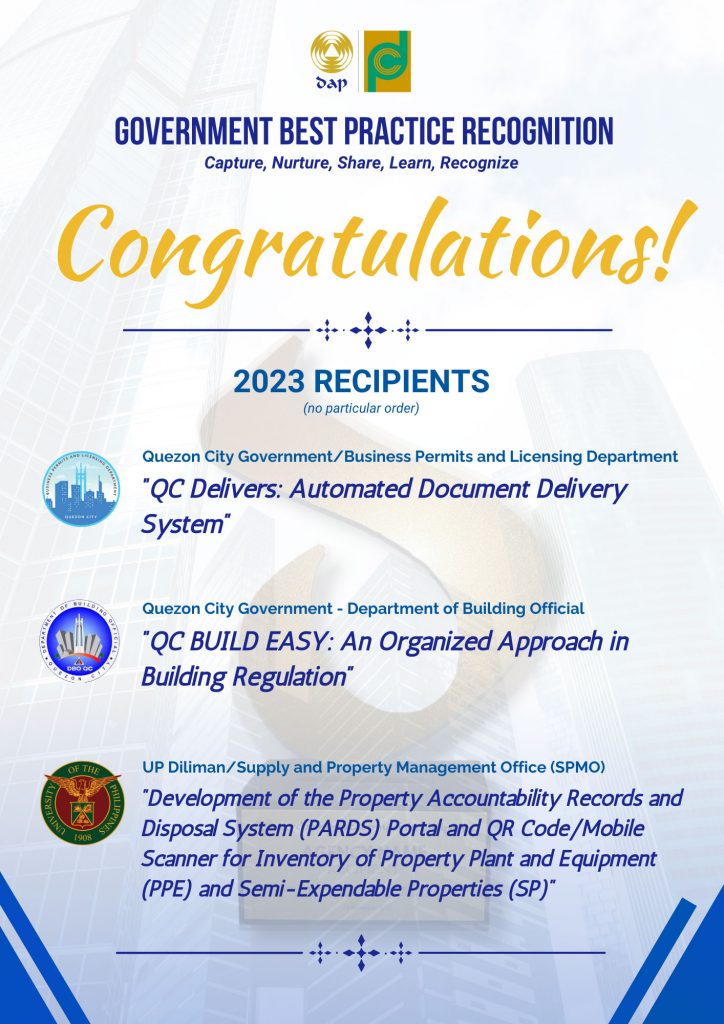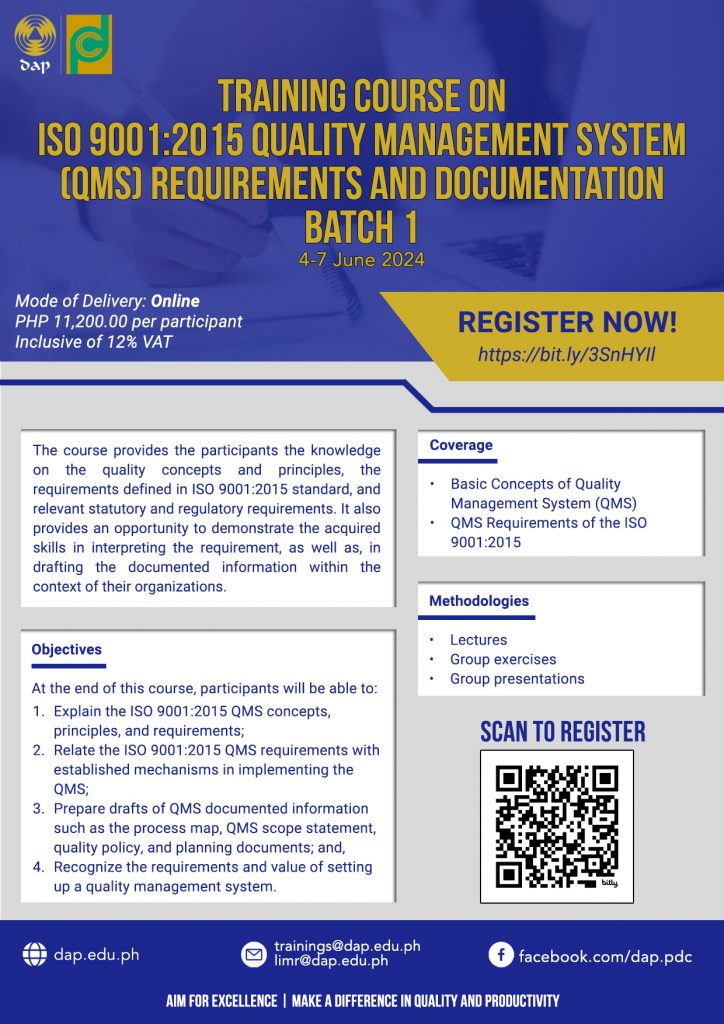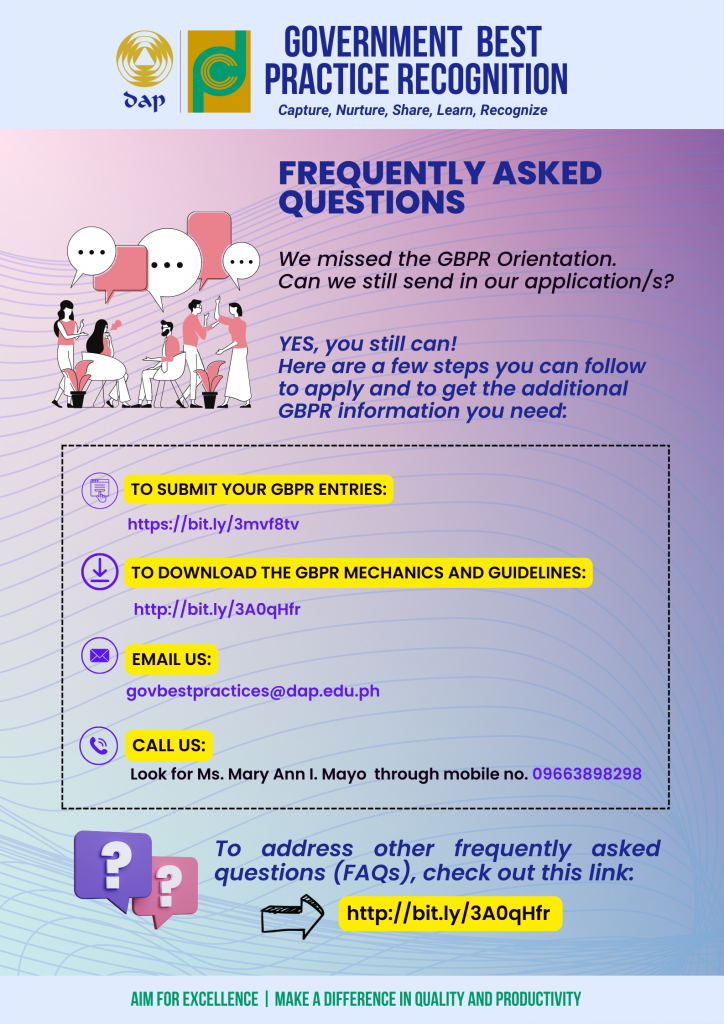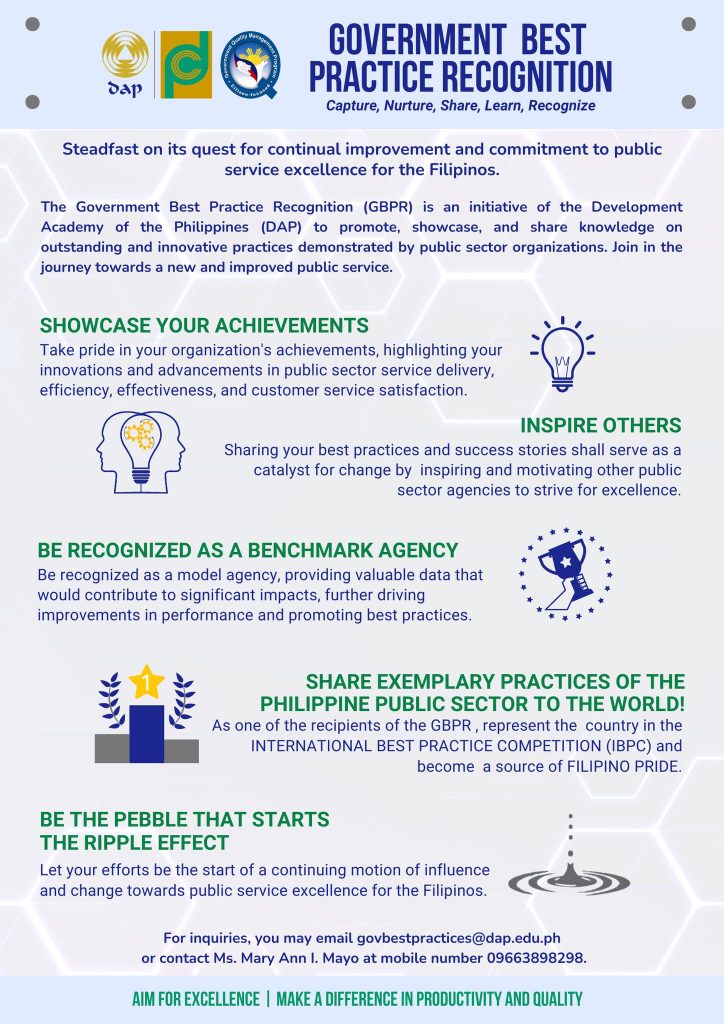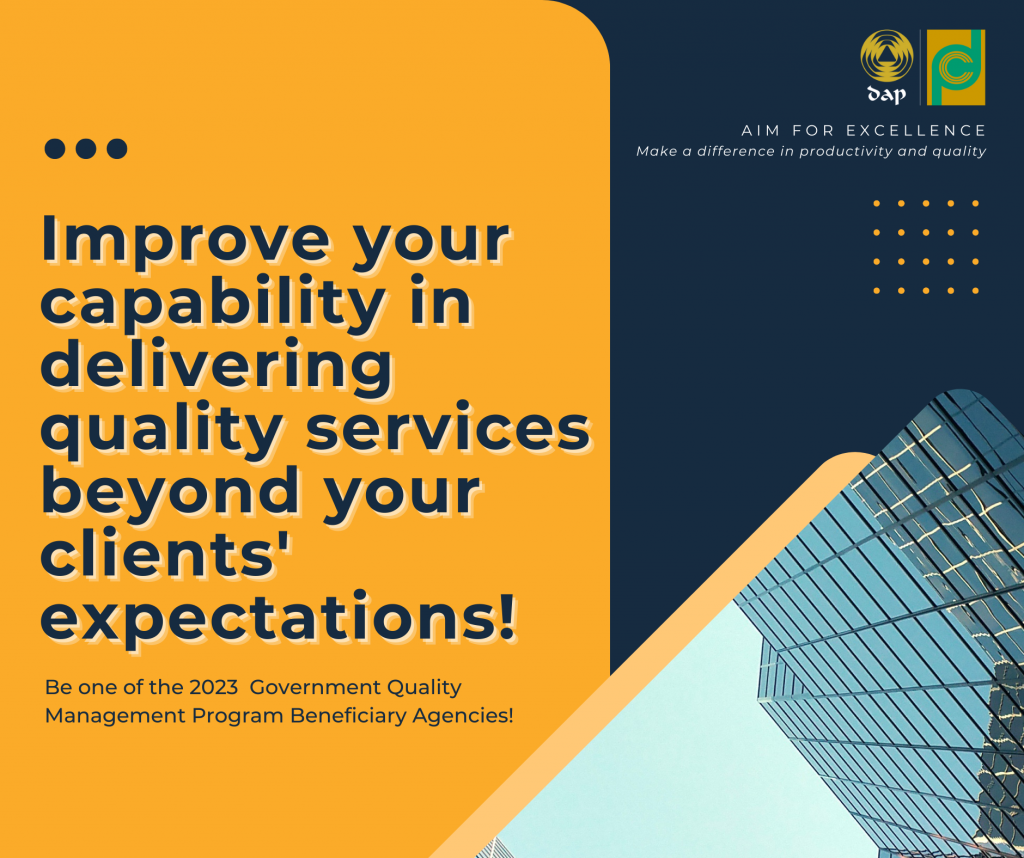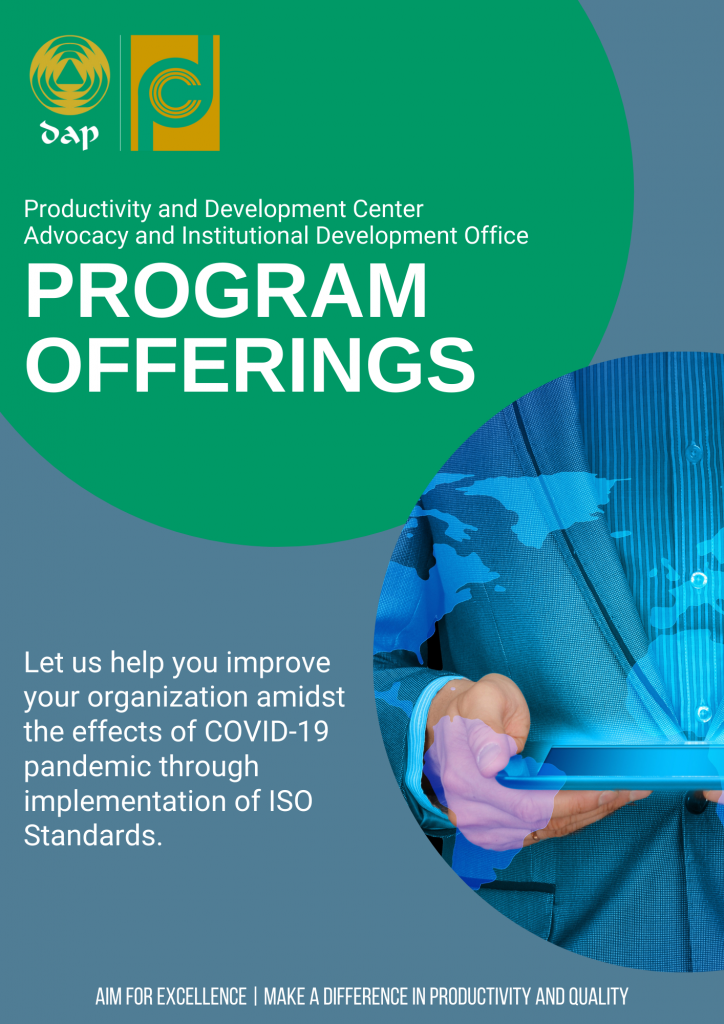Business owners and their representatives expect “no less than good” service from frontline government offices. This was revealed by the 2021 e-Business Satisfaction Survey (e-BizSat), conducted by the Development Academy of the Philippines-Productivity and Development Center (DAP-PDC) under the Government Quality Management Program (GQMP). The survey results point to 10 key service attributes, identified by the respondents, that contribute to their satisfaction when transacting in frontline government facilities.
These attributes are: 1) benefits of regulations to business growth; 2) adjustments of regulatory requirements in view of the pandemic; 3) ease of payment; 4) fair treatment or no “palakasan”; 5) speed to resolve complaints; 6) clear transaction process; 7) observance of health protocols; 8) reachable and responsive agency; 9) professionalism of frontline government staff; and, 10) overall transaction time.
As government agencies are urged to contribute to ease of doing business, these key drivers of business satisfaction serve as vital inputs which they can consider in identifying service quality standards and improving their performance, according to Director Monica Saliendres of the DAP-PDC Productivity Development Research Office (PDRO) who oversees the GQMP project on evidence-based service quality standards. The service attributes that received high satisfaction scores from the transacting businesses are service performance strengths that can form part of the minimum set of service quality standards. As mentioned in the recently approved Philippine Development Plan 2023-2028, the government is keen on using data from the national satisfaction surveys “to identify standards and improvement priorities as well as balancing outside-in and inside-out approaches to improve citizen-centered design and delivery performance.”
Likewise, government policymakers and oversight agencies can use this information, together with other key results of the survey, to stir evidence-based improvement in frontline government services, Saliendres pointed out. Moreover, she underscored that improving service based on feedback will allow the government to serve the public more effectively by aiming to meet their expectations and needs.
The DAP is already preparing for the roll out of the 2023 BizSat this coming July. To date, two cycles of this biennial national survey have been conducted. The first BizSat was run in 2019 and the second cycle in 2021.
When the first BizSat was conducted in 2019, service attributes such as enough functional restrooms and presence of queueing system was essential. But in 2021, while the pandemic was ongoing, transacting business owners expected more hassle-free services like easy payment method, adjustments in regulatory requirements, and observance of health protocols.
The highlights of the 2021 BizSat results were presented during the GQMP’s Third Symposium on Institutionalizing Service Quality Standards: Best Practices in Using Evidence-based Service Quality Standards to Delight Citizens and Business Clients on June 30, 2022. The video recording of the symposium can be accessed via this link: https://www.youtube.com/watch?v=97aICdfH_v8



